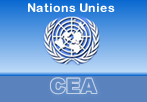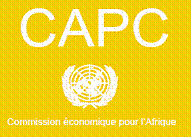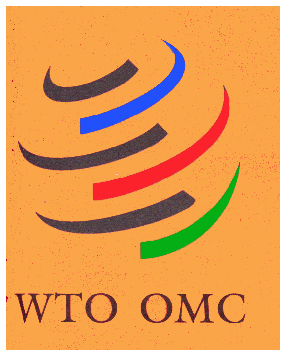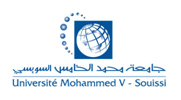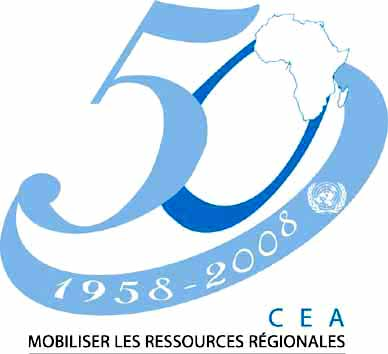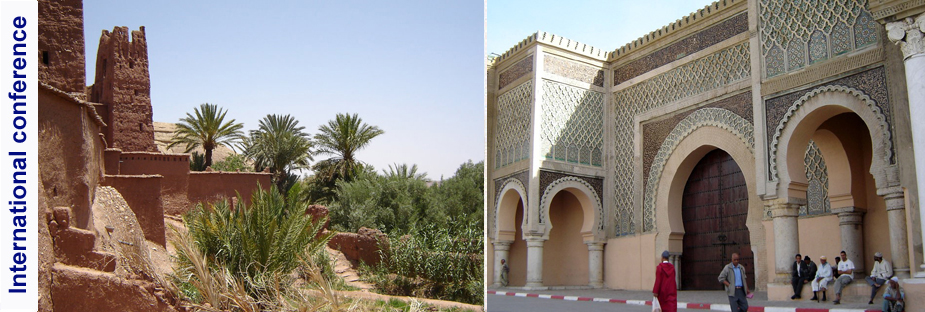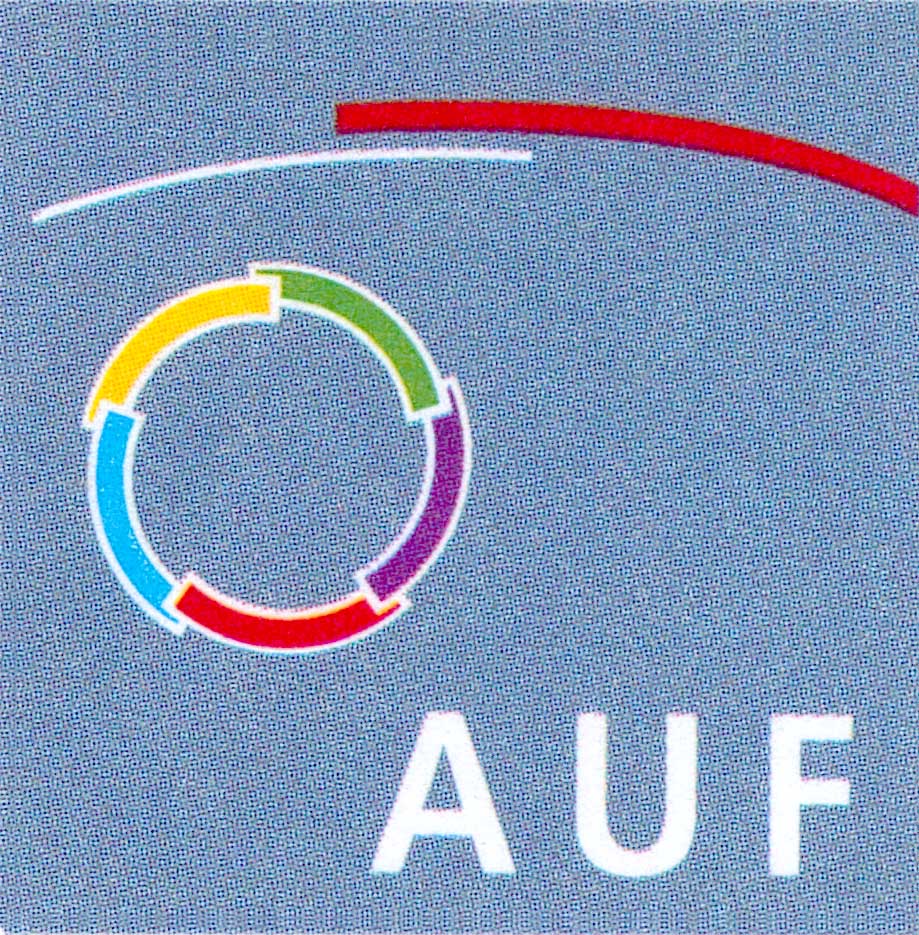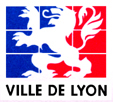|
CALL FOR PAPERS
Colloquium organized by:
- United Nations Economic Commission for Africa (UNECA); - World Trade Organization - GATE UMR (Mixed Research Unit) 5824 of the National Centre for Scientific Research (CNRS), University Lyon 2.
Venue:
Rabat – Morocco
With the support of: - The Agence Universitaire pour la Francophonie – AUF (Academic Agency for the French-Speaking Community) - City of Lyon - Research department of University Lumière Lyon 2
|
Introduction
The developments, both internal and external, affecting the Mediterranean countries have brought them up against numerous challenges. In order to discuss these challenges and their implications, the United Nations Economic Commission for Africa and GATE, in collaboration with a number of partners, namely the Agence Universitaire de la Francophonie (AUF), are organizing a series of annual events. The subject of this year's colloquium is: "Opening up and emergence in the Mediterranean", with the association of the World Trade Organization. It follows on from the first colloquium, which was held on 19 and 20 October 2007 and addressed the "Economic, Social and Environmental Implications of Trade Liberalization in the Countries of the Maghreb and the Near East".
Scope of the colloquium
The work done in recent research on the Mediterranean area has largely focussed on two fields of economic analysis. The first part of the work, asserting its pertinence to the international economy, analyses the expansion of trade in the area and, more often than not, argues in favour of liberalization as a prerequisite for economic growth and well being. This observation is illustrated empirically by numerous modellings, which differ only in terms of the magnitude of the quantified effects of liberalization. Very often, where no such effects are observed, the tendency is to attribute this to structural deficiencies or a lack of preparation in the public policies of the economies under consideration, which are exposed to the shocks of liberalization as a consequence.
The second part of the work, which pertains to the field of industrial economy, sets out to demonstrate, again unanimously, that the countries that benefit most from opening up are those with an industrial fabric capable of reacting to the highs and lows and to changes in global demand, and of withstanding the effects of competition. Here, it is thus the structure and quality of industrial activities upstream of the markets, and more broadly, the performance of industrial systems, that appear as the guarantors of successful global integration.
Objectives of the colloquium
The colloquium has three closely linked objectives. First, the aim is to give an exhaustive account of trade in goods and services and capital movements in the region. Study will focus not only on trade flows within the area, but also on those linking the Mediterranean countries to the rest of the world. Priority will be given to statistical studies that seek to highlight existing asymmetries and hierarchies and to analyse their causes, their effects and the changes currently under way.
Thereafter, an attempt will be made to identify factors that account for the structural weakness of trade and the trade deficits of most countries in the east and south of the Mediterranean. These deficits can often be explained by the inadequacy of the resources put into competitiveness, which is in turn held responsible for the fact that the economies of the region are not more attractive. Is this really the case? With the recent conceptual progress, is it possible to better identify the region's strengths and weaknesses in such matters? In terms of attractiveness, are the Mediterranean countries partners or rivals? And if rivalry is observed here and there, is it compatible with the implementation of policies for industrial, technological and trade cooperation at the level of the entire region?
The third objective is to understand the scope of the developments observed in recent years that have led many economists to refer to the Mediterranean as an "emerging region". To be valid, this term should have the backing of indicators and/or scientifically prepared analysis protocols. Looking further ahead, and comparing the region's achievements with those of other areas likewise destined for greater liberalization, one might ask under what conceptual conditions a theory of emergence is possible today.
Subject areas and topics of the colloquium
I. Sectoral and geographical structure of trade in the Mediterranean countries and its development
The dynamics of trade in the Mediterranean region
Bilateral and regional trade agreements in the Mediterranean
Ways and means of integrating the countries of the area into the Mediterranean and international division of labour
A "Union for the Mediterranean": a realistic project or make-believe? What are the implications for infra-regional trade?
Regional integration: old and new issues
II. Attractiveness of the Mediterranean region
Conventional and renewed approaches to attractiveness
Usefulness and limitations of classifications and measuring tools
State policies on attraction: national and/or comparative approaches
Attractiveness and territorial dynamics
Industrial and technological cooperation in the Mediterranean
The strengths and handicaps of the countries in the region
The Mediterranean countries: partners or rivals?
III. The Mediterranean, an emerging region?
Conditions and implications of emergence for the countries of the region
Is there a theory of emergence?
The costs and benefits of emergence
Are experiences of emergence exportable?
The emerging countries of the Mediterranean: partners or predators for the EU?
The above topics are indicative and are not intended either as an exhaustive or as a restrictive list. All contributions should nevertheless be directly related to the Mediterranean region.
Dates
- 15 April 2008: deadline for submission of proposals for papers (title, authors and name of institution, e-mail, two-page summary) to Nassim Oulmane, Economic Commission for Africa (Rabat) – e-mail: ceagateomc2008@uneca.org
- 5 May 2008: dispatch of list of the proposals accepted
- 3 September: deadline for submission of papers by their authors, to be sent to Nassim Oulmane, Economic Commission for Africa (Rabat)
e-mail: ceagateomc2008@uneca.org
- 10 September: publication of final programme of the colloquium.
Directions for the presentation of papers
Twenty pages maximum, in Times New Roman 12, single spacing. Papers may be written (and presented orally) in French or English.
Scientific Committee
ABDEL BAKI S., Professor at the Faculty of Law, Cairo
ABDELMALKI L., Reader, University Lumière Lyon 2, GATE, Lyon
AMAROUCHE A., INPS, Algiers
AYADI M., Professor at the ISG, Tunis
BARBIER J.P., French Development Agency
BENABDALLAH Y., Researcher, CREAD, Algiers
BEN HAMMOUDA H., Director of the Institute for Training and Technical Cooperation Division, WTO, Geneva
BERTHAUD P., University Pierre Mendès France and LEPII-CNRS
BEN RHOMDANE M., Professor, University of Tunis, Tunis
BOUNEMRA BEN SOLTANE K., Director of the UNECA Office in Northern Africa, Rabat
DKHISSI S., Professor at the Faculty of Law, Mohamed V, Souissi, Rabat
FUGAZZA M., Economist, UNCTAD, Geneva
GHOUFRANE A., Professor at the Faculty of Law, Mohamed V, Souissi, Rabat
JACQUET P., Executive Director of the French Development Agency (AFD)
KOBIELSKI J., Cooperation attaché, Cooperation and Cultural Action Service, French Embassy, Morocco
LARAKI K., Regional Advisor, UNECA Office in Northern Africa, Rabat
LIPCHITZ A., Economist, French Development Agency, Paris
MOURJI F., Professor at University Hassan II, Casablanca
OULMANE N., Economist, UNECA Office in Northern Africa, Rabat
PERIDY N., Professor, University of Nantes and LEN
RICHET X., Professor, University Sorbonne Nouvelle, Paris
SADNI-JALLAB M., Economist, UNECA, Addis Ababa
SANDRETTO R., Professor, University Lumière Lyon 2, GATE, Lyon
SILEM A., Professor, University Jean-Moulin Lyon 3, Lyon
THIELEN G., Counsellor, Institute for Training, in charge of the Universities Unit, WTO
Organization Committee
ABDELMALKI Lahsen,
BEN HAMMOUDA Hakim
BOUNEMRA BEN SOLTANE Karima
LARAKI Karim
OULMANE, Nassim
SADNI-JALLAB Mustapha
SANDRETTO René
Post-Colloquium
Following selection and a referee process, a number of contributions will be published either in reviews or as separate publications.
Registration Fees
Students: 30 euros
Others: 50 euros
![]() [Back to
thé top of this page]
[Back to
thé top of this page]
